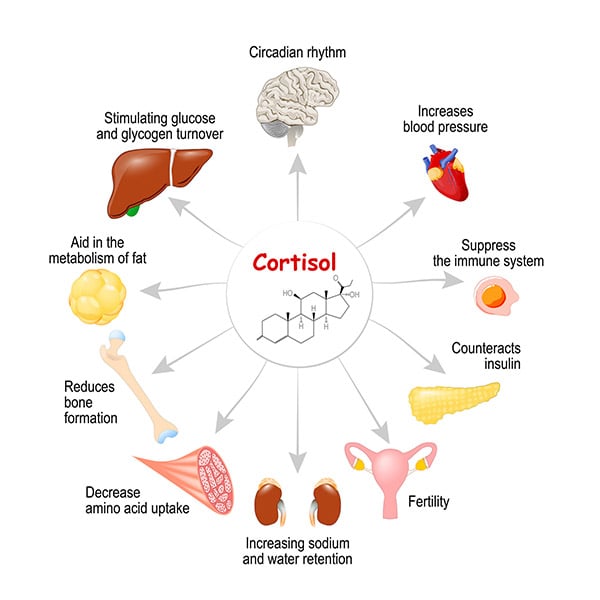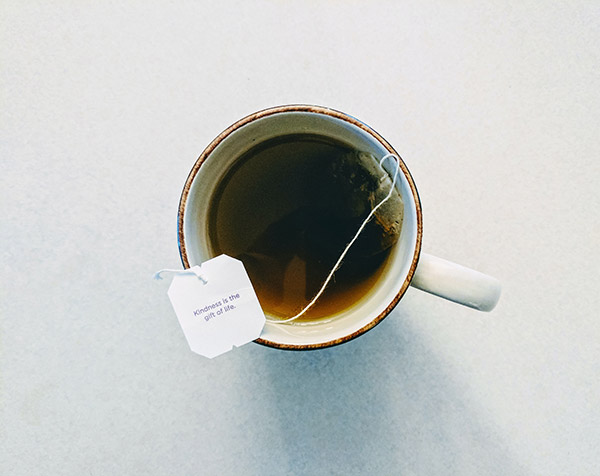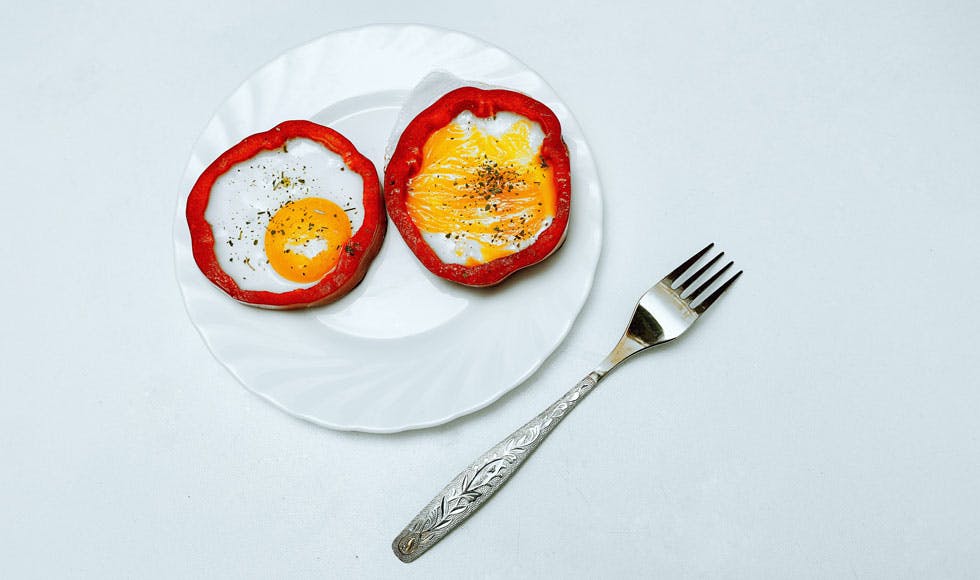
- Health hub/
- Stress relief & sleep support/
- What you need to know about cortisol


What is cortisol?
Cortisol is a hormone produced by the body and is predominantly involved in the fight-or-flight response, determining how you will react in times of acute stress.In this way, cortisol is your very own first responder – it senses danger and immediately gets to work.
How cortisol works
The instant your brain detects a threat, it triggers a complex set of bodily functions – including increased heart-rate and quicker breathing ¬– while sending a message to the adrenal glands to release cortisol.
This stress-response steroid hormone floods into the bloodstream, helping to suppress other functions that are deemed unhelpful or unnecessary at times of threat, such as feelings of hunger .
Even when you’re not facing an immediate threat, cortisol is an essential hormone, helping with your memory formulation , metabolism and salt-water balance.
Cortisol levels tend to fluctuate throughout the day, peaking in the morning after you wake up before gradually lowering at night.
Stress, low mood and malnourishment can all cause higher than usual levels of cortisol to occur. Weight loss, fatigue and muscle weakness can be signs of low levels of cortisol.

When released into the bloodstream, cortisol can act on many different parts of the body respond to stress. Image: iStock
What does cortisol do?
Cortisol helps the body manage stress by maintaining blood pressure and immune function, and regulating inflammation.Generally speaking, when you're under pressure it gives you a boost of energy .
That's great when you have a simple problem to solve – increased cortisol provides the kick you need to take action – but when stress levels rise and we don't have an outlet for that extra energy, cortisol remains in the bloodstream and builds up, which you don't want.
Too much cortisol is linked with decreased bone density , thinning skin and increased blood pressure .
Athletes who put their bodies through immense physical stress are found to have higher-than-average cortisol levels — so although exercise can help, the body has its limits.
How to reduce cortisol

Cold therapy (such as any icy shower), black tea are thought to reduce cortisol and help regulate stress .
Coffee on the other hand produces an increase in the hormone and inhibits the natural decline that occurs during the evening.
If you're under a lot of stress, it might also be worth adding asparagus to your diet. Studies suggest the spear-like veg has a positive effect on lowering stress hormones and improving sleep.
How exercise affects cortisol levels
Unless you're an athlete when it comes to regulating cortisol steady exercise is best.

Take advantage of your body's natural rhythms and do high intensity exercise in the morning.
If you want to include high-intensity training, do it in the morning when cortisol levels are already high and opt for steady state cardio in the evenings.
Being active for at least 30 minutes a day is recommended and might help to keep your cortisol levels at a happy medium.
When it comes to good health, do what you can to live well, move well and eat well, and know that cortisol is there to help.
Looking for more stress-busting ideas? Sign up to our ‘Calmer, clearer: 4 weeks to a better you’ action plan.




